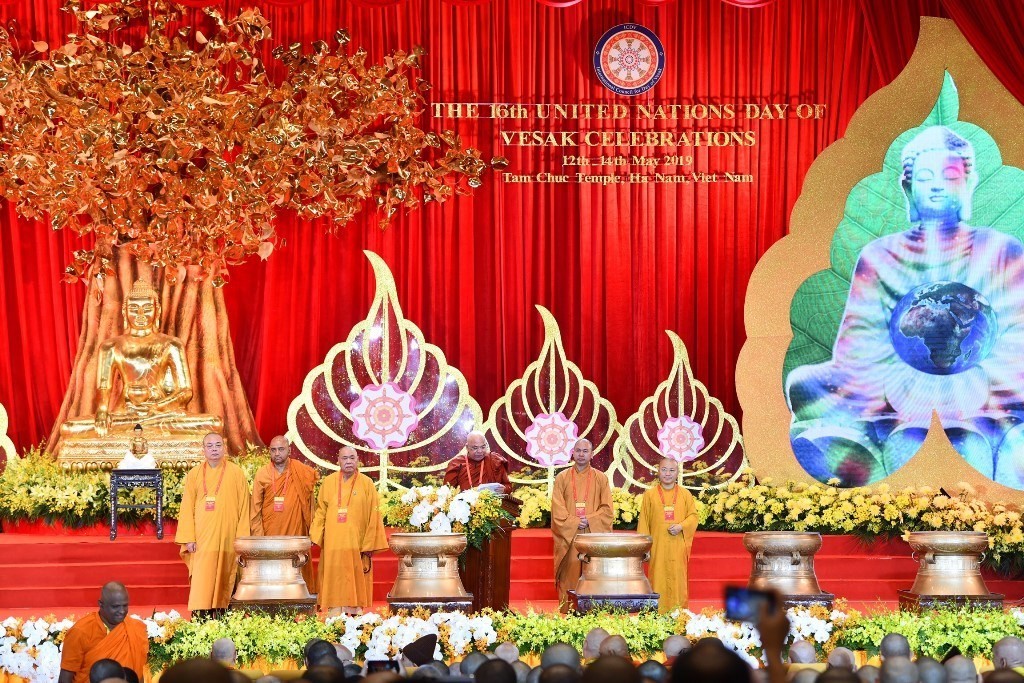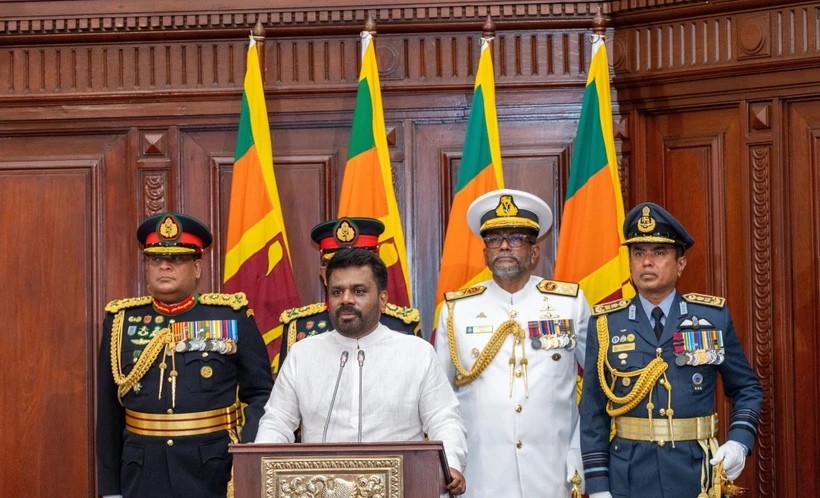Vietnam News Today (Nov. 15): Vietnam Boasts Potential to Become Global Source of Halal Food
| Vietnam News Today (Nov. 13): Sweden, Vietnam Sanguine About Flourishing Relations | |
| Vietnam News Today (Nov. 14): Vietnam, India Enhance Comprehensive Strategic Partnership |
| Vietnam News Today (Nov. 15) notable headlines Vietnam supports building conducive international economic governance system Vietnamese PM to attend G20 Summit in Brazil, visit Dominican Republic Vietnam boasts potential to become global source of Halal food HCM City ranks third in Southeast Asia for startup ecosystem value: report Phu Yen develops tourism into a key economic sector Vietnamese Vice State President’s visit in Swedish media spotlight President Luong Cuong suggests cooperation opportunities for Peruvian businesses German and Vietnamese firms co-operate in livestock farming Da Nang to offer multiple tourist activities to celebrate Christmas and New Year |
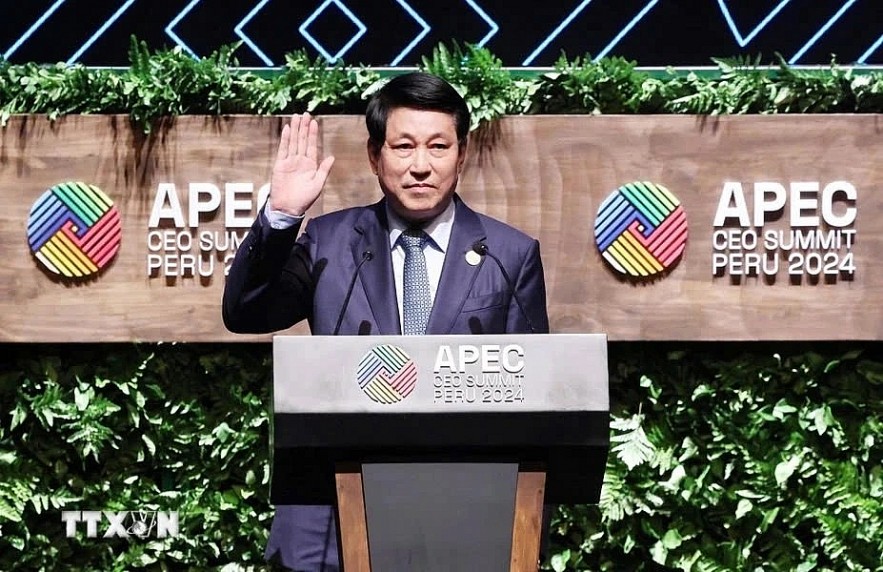 |
| Vietnamese President Luong Cuong delivers a keynote speech at the APEC CEO Summit 2024 in Lima, Peru, on November 14. (Photo: VNA) |
Vietnam supports building conducive international economic governance system
In his speech at the APEC CEO Summit 2024 in Lima, Peru, on November 14, Vietnamese President Luong Cuong outlined the need to build the most conducive international economic governance system for the development of member economies.
According to the Vietnamese President, the world is undergoing significant, transformative changes that have a profound impact on the international political and economic landscape, affecting individual countries and even specific businesses. In such a context, the Asia-Pacific region, a collective of the world’s leading economies at the center of a new technological revolution, serves as a platform to share ideas and build the most conducive international economic governance system for the development of member economies.
To do this, he said it is essential to ensure a peaceful and stable international environment that encourages global trade and investment, as well as economic integration and connectivity. Only when trade is promoted and interconnected, and people are actively involved and benefit, can there be development and prosperity. Conversely, isolation, protectionism, and trade wars will only lead to recession, conflict, and poverty.
“Now more than ever, we need to eliminate the mindset of ‘one side wins, the other loses’ and not allow nationalism to distort policy. In a tightly interconnected world today, where interests are intertwined, all countries, regardless of size, must adhere to international law and act responsibly, as every decision made has significant impacts and can lead to unpredictable consequences.
He stressed the need to ensure that all countries and individuals have equal access to opportunities and can fairly benefit from the fruits of cooperation and development. Alongside achievements, he said globalization has also brought about social inequality and a widening wealth gap, cited VOV.
“To restore and strengthen trust in free trade and economic integration, alongside policies that support workers through vocational training, employment, and social welfare, international trade and investment relations must adhere to World Trade Organization regulations and ensure a balance of interests and fair competition. Imposing new standards on trade and investment without a scientific basis and ignoring the differences in development levels and specific characteristics of countries not only robs hundreds of millions of workers of job opportunities but also stifles creativity and hinders business development,” he said.
Cuong then called for fundamental solutions to be put forward to support the transition to green and clean energy to effectively address climate change, the greatest challenge of humanity today and in future.
This is a complex process that requires a coordinated and harmonious approach to multiple factors, including funding, technology, infrastructure, human resources, as well as institutions, policies, social issues, and economic efficiency. The top priority is to remove bottlenecks related to resources and technology so that developing countries can both expand their energy systems to meet the growing demands of economic and social development and reduce carbon emissions, aiming for a complete transition to renewable energy.
In addition, he said, it is essential to ensure that breakthrough technologies, especially artificial intelligence, are developed and applied in a responsible and inclusive manner, truly becoming a driving force for economic growth and social progress.
In his opinion, “the digital transformation of the world will either narrow or widen the wealth gap between states and within each country, depending significantly on how we manage and utilize artificial intelligence. Therefore, the global governance system for this particularly important field must be built on the guiding principle of balancing the encouragement of development with the assurance of security, safety, national sovereignty, and the moral values of humanity; balancing the common interests of the community with the private interests of businesses; and creating opportunities for all countries to contribute to and benefit from the technological revolution.”
He acknowledged the business community’s crucial role in the remarkable successes of the Asia-Pacific region as a whole and APEC cooperation in particular, and hoped that the business community would collaborate with the governments to turn challenges into opportunities and make those opportunities a reality.
“Your role is always valued, and your voices will always be heard,” he stated.
To make a further contribution, he suggested that businesses should lead the way in innovating business models and production towards green, circular, and digital transformations, becoming a driving force that inspires the development of key sectors of the economy.
“Businesses should increase investment in research and development to promote the advancement and application of breakthrough technologies that address urgent global challenges. They should actively participate in shaping rules and regulations for new and strategically significant areas of the global economy. And last but not least, they should act as a bridge, connecting economies, promoting people-to-people exchanges, and contributing to the building and strengthening of cooperative and friendly relations between nations,” he said.
Talking about Vietnam, the President noted that after nearly four decades of reform and deep international integration, Vietnam has risen from the ashes of war to become a symbol of peace, a bright spot in the global economy, and a land of opportunities. The country is entering a new era, with a fresh mindset and a strong aspiration for a prosperous and happy state, along with firm belief in a bright future.
According to him, Vietnam is a fast-growing, dynamic economy ranked 35th in the world. It is a strong and stable political system centered on the people; is a patriotic, confident, and self-reliant nation with a population of more than 100 million; and has numerous friends and international partners across the globe. It supports the multilateral trading system and the central role of the World Trade Organization, believing in the value of free trade, connectivity, and international integration.
“We will responsibly engage and contribute positively to global politics, the world economy, and human civilization, embodying the spirit that Vietnam is a friend, a reliable partner, and an active and responsible member of the international community,” he stressed.
Calling on international businesses to accompany Vietnam on the journey ahead, he affirmed that Vietnam’s strong development will create many new opportunities for both domestic and international businesses across various sectors, from trade, industry, agriculture, and tourism to infrastructure, logistics, and high-tech industries.
“The Vietnamese market continues to offer numerous benefits and advantages that few places can match for international businesses and investors,” he noted, reasoning Vietnam is a strategic gateway connecting the Southeast Asian market and the Asia-Pacific region with the world. It is a large and promising market, and an attractive destination for the shift in supply chains in the region. It is initiating a new economy, transitioning from a brown to a green economy, and moving from a traditional economy to a digital, startup, and innovative economy.
He expressed his belief that this summit would bring a fresh breeze of new energy, enabling all member economies to step into a new era of opportunities and successes, an era of a dynamic, innovative, peaceful, and prosperous Asia-Pacific.
Vietnamese PM to attend G20 Summit in Brazil, visit Dominican Republic
Prime Minister Pham Minh Chinh and his spouse will lead a high-ranking delegation of Vietnam to attend the G20 Summit in Rio de Janeiro, Brazil, from November 16 to 19.
During his time in Brazil, the PM will also engage in a series of bilateral activities, according to VNA.
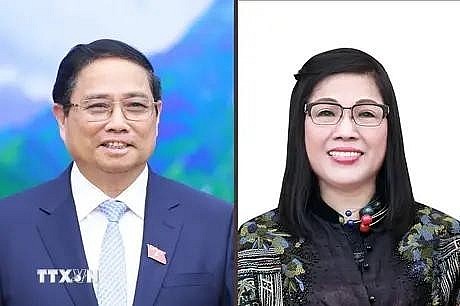 |
| Prime Minister Pham Minh Chinh and his spouse (Photo: VNA) |
Following that, he will pay an official visit to the Dominican Republic from November 19 to 21.
The trips will be made at the invitation of President of Brazil and Chair of the 2024 G20 Summit Luiz Inacio Lula da Silva and his spouse, and President of the Dominican Republic Luis Rodolfo Abinader Corona.
Vietnam boasts potential to become global source of Halal food
Experts highlighted Vietnam's potential for importing and exporting Halal products during a workshop held on trade promotion regarding Halal food products, organized by the Trade Promotion Agency under the Ministry of Industry and Trade in coordination with a number of relevant units in Ho Chi Minh City on November 14.
Participants provided solutions to support businesses in promoting Halal food exports, as well as putting Vietnam on the list of typical Halal food suppliers globally.
According to experts' analysis, two billion people currently make up the Muslim market globally, therefore accounting for about 25% of the total global population; in which, Muslims make up the majority in Asia, especially in the ASEAN bloc.
A report released by the Food and Agriculture Organization of the UN (FAO) also shows that spending on Halal food by the global Muslim community is increasing, with this figure expected to reach US$1.9 trillion this year before rising to US$15 trillion in 2050.
With a growing demand for Halal products globally and attracting attention outside of the Muslim community, Vietnam is also considered to have the potential to export Halal food with a position in the Top 20 leading food exporting countries in the world whilst being one of the 15 largest agricultural exporting countries.
In particular, the nation is also an important link in terms of global supply chains with 17 signed Free Trade Agreements (FTAs); of which, many new generation, regional, and inter-regional FTAs have been signed.
However, despite having the world's top 20 export capacity, the country is still not among the list of the 20 to 30 countries supplying Halal food globally, whilst the nation’s Halal product exports are still quite modest. This situation is due to the fact that Vietnamese enterprises have not fully exploited the opportunities due to certain difficulties in terms of producing and exporting Halal products such as high investment costs, information about Halal market culture and Halal standards.
Nguyen Thi Ngoc Hang, marketing director of the Halal Certification Office, said that in order for Vietnamese enterprises to export Halal products to Muslim countries, the most important thing is to choose a reputable and internationally recognised Halal certification organization.
Although some Halal certification organizations in the country can provide certification services, if they are not recognized by an international group then their certification will not be valid when exporting to many Muslim countries.
A reputable and internationally recognized Halal certification organization will therefore not only help a business's products to be easily accepted in Muslim markets, but also to help create prestige and enhance the brand's position within the international market, Hang went on.
Furthermore, Halal standards in each market and each country are different, meaning that businesses need to ensure that their products are certified by an internationally recognised certification organization, VOV reported.
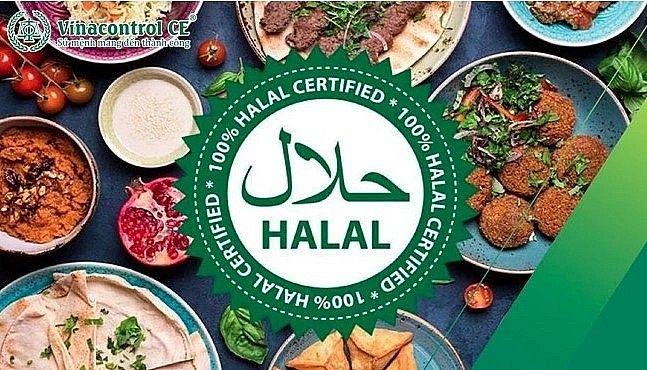 |
| Photo: Vinacontrol |
The Department of Trade Promotion under the Ministry of Industry and Trade is also focusing on increasing support and coordination with associations, localities, enterprises, and relevant agencies in a bid to launch a variety of trade promotion activities such as organizing training courses, seminars, conferences, trade fairs, and exhibitions to actively support Vietnamese enterprises in terms of market information, finding partners, and expanding the consumption of Vietnamese Halal export products.
Moreover, if the business community engages effectively and systematically in the global Halal market then it will help Vietnam open up a potential Halal market, thereby creating fresh impetus for sustainable economic development.
Regarding the Halal market, Nguyen Minh Phuong, head of the Asia-Africa Market Department of the Ministry of Industry and Trade, pointed out that Vietnam faces competition from many countries such as Malaysia, Indonesia, and Thailand, all of which have experience and reputation in exporting Halal products.
Besides, consumer culture in the Middle East and African markets is very different from those in the nation, differing from the way of consuming products, taste preferences, and packaging to the method of promoting products.
Other challenges include logistics such as long transit times, high transportation costs, and unreliable infrastructure in African countries that can make it difficult for businesses to maintain a stable supply chain. This requires the ability to build relationships with local partners and importers, which is also an important factor in effectively accessing the Middle East and African markets in particular, as well as the global Halal market in general, Phuong said.
Therefore, businesses need to take advantage of a series of trade promotion activities through international fairs, exhibitions, or trade missions organized by the Government and industry associations in a bid to gradually seize opportunities to penetrate the potential market of Vietnamese Halal products.
Furthermore, it can be viewed as very necessary for businesses to focus on analyzing and assessing risks before deciding to expand the Halal market.
HCM City ranks third in Southeast Asia for startup ecosystem value: report
Ho Chi Minh City ranks third in Southeast Asia in terms of startup ecosystem value, with an economic impact of 5.22 billion USD, according to Startup Genome Global Startup Ecosystem Report, released at the Saigon Summit recently held in the city.
Meanwhile, the 2023 Southeast Asia Digital Economy Report, jointly conducted by Google, Temasek, and Bain & Co, predicted that Vietnam’s digital economy will continue to grow at a rapid pace, with an estimated value of 45 billion USD by 2025.
Vietnam's large consumer base of approximately 100 million people offers significant opportunities for startups and businesses looking to expand their operations, it said.
In addition, a report from Vietnam's National Innovation Center (NIC) and Golden Gate Ventures identified five key sectors expected to drive Vietnam's future economic growth - healthcare technology, financial technology (fintech), logistics tech, green economy, and educational technology, cited VNA.
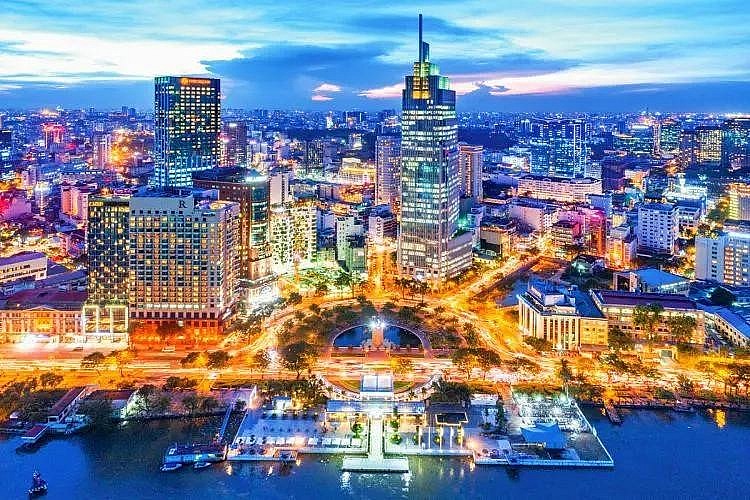 |
| A corner of HCM City (Photo: baochinhphu.vn) |
Themed “Charting Vietnam’s Tech Future”, the Saigon Summit highlighted Vietnam’s growing prominence in the tech industry, which is rapidly advancing to compete with other major players in the region.
It attracted over 700 startup and innovation leaders from across Southeast Asia, alongside representatives of 50 companies and 20 prominent speakers. Keynote addresses were delivered by notable figures such as Le Hong Minh, founder and CEO of VNG; Niraan de Silva, CEO of VNLife; and Min-Liang Tan, CEO and co-founder of Razer.
The event provided valuable networking opportunities for participants to connect with innovators and entrepreneurs, explore emerging sectors, and build partnerships. The summit's "Investor Hour" also featured tailored meetings based on industry sectors and stages of business development, encouraging in-depth discussions between founders and investors.
Phu Yen develops tourism into a key economic sector
From a primarily agricultural province, through various congresses, the Phu Yen Provincial Party Committee has outlined an appropriate path to modernise and sustainably develop the economy. In this context, the province has identified tourism as a key economic sector.
Phu Yen’s goal for 2030 is to welcome at least six million visitors annually, with tourism revenue reaching around 12.6 trillion VND (496.2 million USD) and tourism contributing more than 10% to the province’s GRDP.
Tourism in Phu Yen has shown notable development recently, with impressive figures. In 2022, the province welcomed 2.2 million tourists, and this year, the number is expected to reach 4 million, achieving 117.6% of the annual target, a 25% increase compared to 2023. International visitors are expected to reach 30,000, 150% of the yearly target, a 51.9% increase compared to 2023. The total revenue from tourism is estimated at 8 trillion VND, up 62.7% compared to 2023 and 4.1 times higher than in 2019.
Vice Chairman of the Phu Yen Provincial People’s Committee, Le Tan Ho, shared that these numbers are the result of over three years of implementing the Action Program No. 09-CTr/TU dated August 18, 2021, by the Phu Yen Provincial Party Committee, aimed at developing tourism in the 2021-2025 period, to make tourism the province’s key economic sector by 2030.
According to Le Tan Ho, to exploit the province’s potential and advantages for fast and sustainable development, Phu Yen has always prioritised attracting investment, including in tourism, as a political task to provide resources for socio-economic development, improve quality, and accelerate economic growth.
To that end, the entire political system has focused on deploying solutions to improve the investment and business environment, making it easier for investors, such as integrating Phu Yen’s tourism planning into the provincial master plan for the 2021-2030 period, with a vision for 2050. In addition, they will issue a plan for the Phu Yen Geopark aiming for UNESCO Global Geopark recognition, adjusting the Tuy Hoa Airport master plan, developing inland waterway infrastructure, implementing coastal road projects, investing in tourism infrastructure, and promoting international cooperation.
Phu Yen has 52 tourism and service projects, 6,780 workers in the tourism sector, and an estimated tourism revenue of 8 trillion VND in 2024. Tourism activities continue to make a significant contribution to the province’s economic growth.
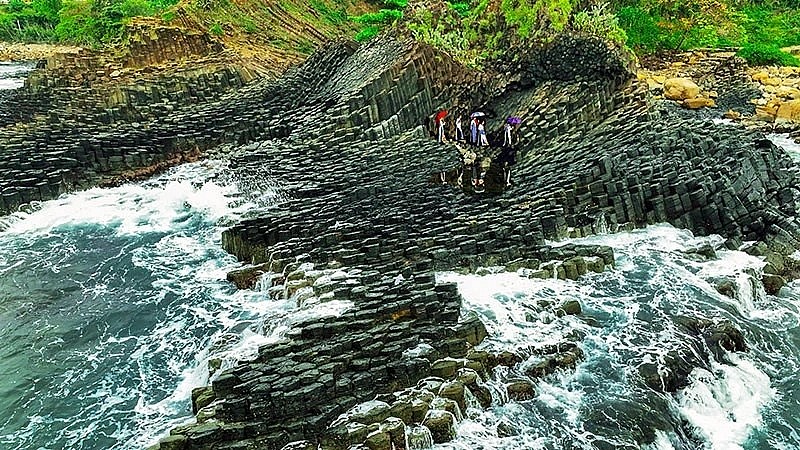 |
| The special national relic ‘Ganh da dia’ (The Cliff of Stone Plates) in An Ninh Dong Commune, Tuy A District attracts more and more domestic and foreign tourists. Photo: Thanh Xuan |
Phu Yen has a coastline of 189 kilometers, with many bays, beaches, lagoons, and rocky outcrops that offer pristine natural beauty, creating diverse ecological landscapes, such as Long Thuy Beach, O Loan Lagoon, Hon Chua, Cu Lao Mai Nha, Hon Yen, Xep Beach, the Cliff of Stone Plates, and Xuan Dai Bay. These are advantages for developing various tourism services.
In Phu Yen, Song Cau Town has great potential for developing tourism and coastal services. Recently, the town has made many efforts to attract investment and develop the economy, including attracting investment for coastal tourism and service projects, NDO reported.
According to Phan Tran Van Huy, Deputy Secretary of the Town Party Committee and Chairman of the People’s Committee of Song Cau Town, the town has established many mechanisms and policies to attract large domestic and foreign investors to develop tourism projects along Cu Mong Lagoon and Xuan Dai Bay National Tourism Area, aiming to create linkages and diversify tourism offerings.
In particular, Song Cau Town successfully organized the first Lobster Festival to promote the national tourism site of Xuan Dai Bay, introduce the lobster farming and processing industry, and build a sustainable “lobster hub.” The festival made a significant impression, showcasing Song Cau as a dynamic and developing town.
The tourism industry in Phu Yen has also made significant efforts to boost promotion, organize and participate in large tourism events both within and outside the province, and collaborate with other regions to develop tourism products.
For example, the province signed a cooperation Program to develop tourism with six provinces: Binh Dinh, Dak Lak, Gia Lai, Kon Tum, Quang Ngai, and Phu Yen for the 2022-2027 period. They coordinated with localities to implement the “One Journey, Three Destinations” tourism Program between Binh Dinh, Phu Yen, and Khanh Hoa, serving Northeast Asian tourists. In addition, tourism information on the Phu Yen tourism website has been regularly updated, developing a regional tourism alliance website for Phu Yen, Binh Dinh, Dak Lak, and Gia Lai to support businesses to promote tourism.
Pham Dai Duong, Secretary of the Phu Yen Provincial Party Committee, recognised that Phu Yen’s tourism development has achieved certain successes, but challenges and limitations remain that need attention.
The Phu Yen Party Committee recently held a conference on tourism development and set future directions. They discussed and approved a plan for developing Phu Yen’s tourism for the 2024-2030 period, with a vision for 2050.
In the future, the Phu Yen Party Committee will focus on specific tasks, such as strengthening leadership at all levels for tourism development, raising awareness and changing perspectives on tourism development, focusing on managing and implementing the tourism plan and mobilizing resources for tourism infrastructure development. This includes implementing policies for tourism growth, diversifying and enhancing the quality of tourism products, developing distinctive tourism products to create a competitive edge, accelerating digital transformation, enhancing tourism promotion and expanding international cooperation, training and developing tourism human resources, and improving the effectiveness of state management of tourism.
According to Pham Dai Duong, to achieve the goals of promoting tourism development in the province, departments, sectors, and localities need to continue raising awareness and responsibilities in managing and developing tourism, particularly the responsibility of leaders in effectively organizing and implementing the Action Program No. 09-CTr/TU. They must also efficiently carry out tourism development tasks and solutions to meet the goals outlined in the provincial master plan and approved by the Prime Minister, building the tourism brand “Phu Yen - A Green, Clean, Safe, Attractive, and Friendly Destination,” and striving to make tourism the province’s key economic sector by 2030.
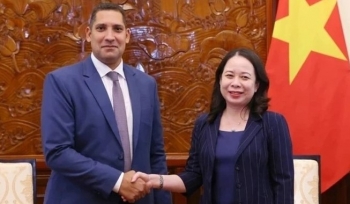 | Vietnam News Today (Nov. 10): Vietnam, India fortify traditional friendship, multifaceted cooperation; Vice President’s official visit helps to foster closer ties with Sweden; Vietnam draws ... |
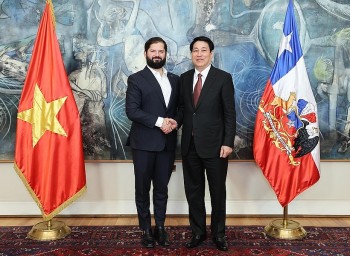 | Vietnam News Today (Nov. 12): Vietnam, Chile Look to Advance Bilateral Ties Vietnam News Today (Nov. 12): Vietnam, Chile look to advance bilateral ties; Ample room for Vietnam and Peru to boost trade ties; Vietnam a unique ... |
Recommended
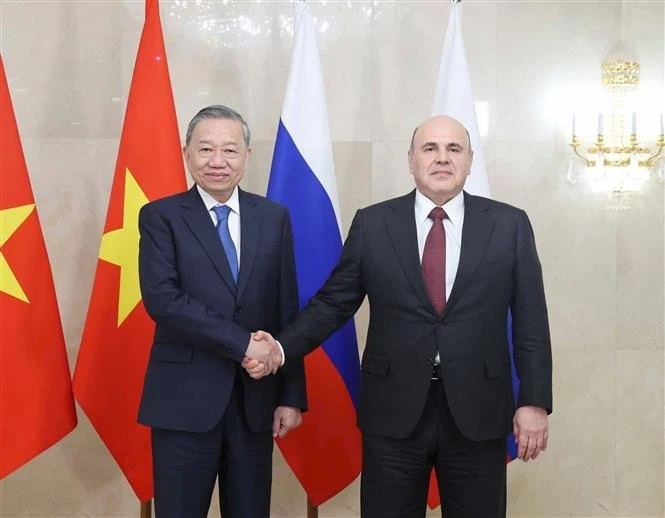 National
National
Vietnam News Today (May 9): Vietnam Ready to Work With Russia to Elevate Relations
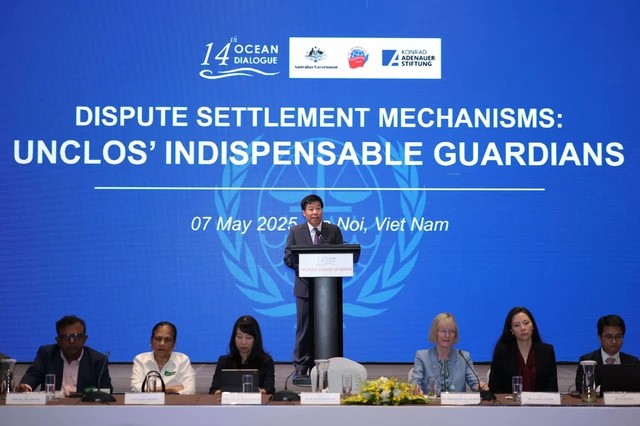 National
National
Vietnam News Today (May 8): Vietnam Remains Committed to UNCLOS
 National
National
Vietnam News Today (May 7): Vietnam Hosts Over 7.67 Million International Visitors in First 4 Months
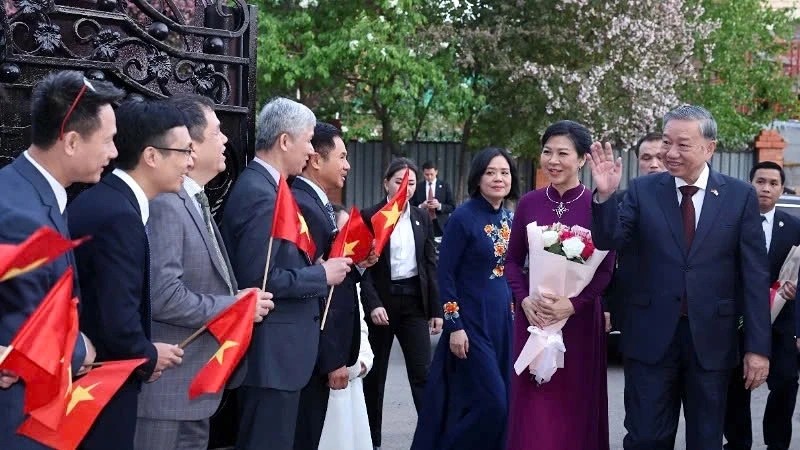 National
National
Vietnam News Today (May 6): Party Leader To Lam Meets Vietnamese Expatriates in Kazakhstan
 National
National
Vietnam News Today (May 11): Vietnam, Austria to Boost Cooperation in High-Tech Development, Innovation
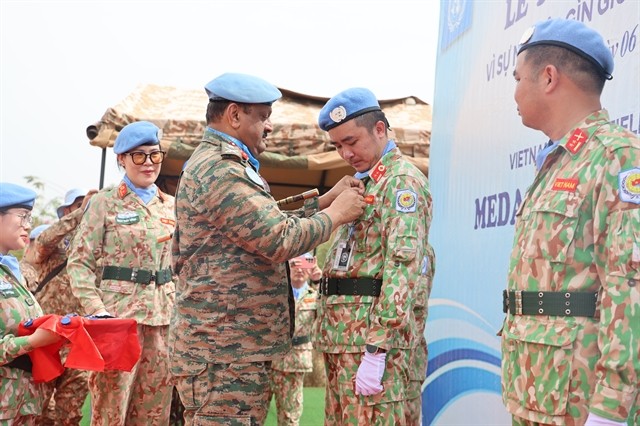 National
National
Vietnam News Today (May 10): Vietnamese Peacekeepers Honored with UN Medal in South Sudan
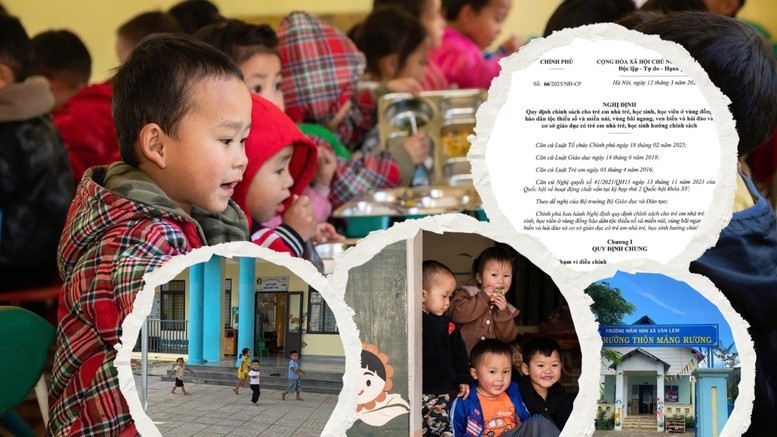 National
National
Boarding Kindergarten Children Supported with VND360.000/Month
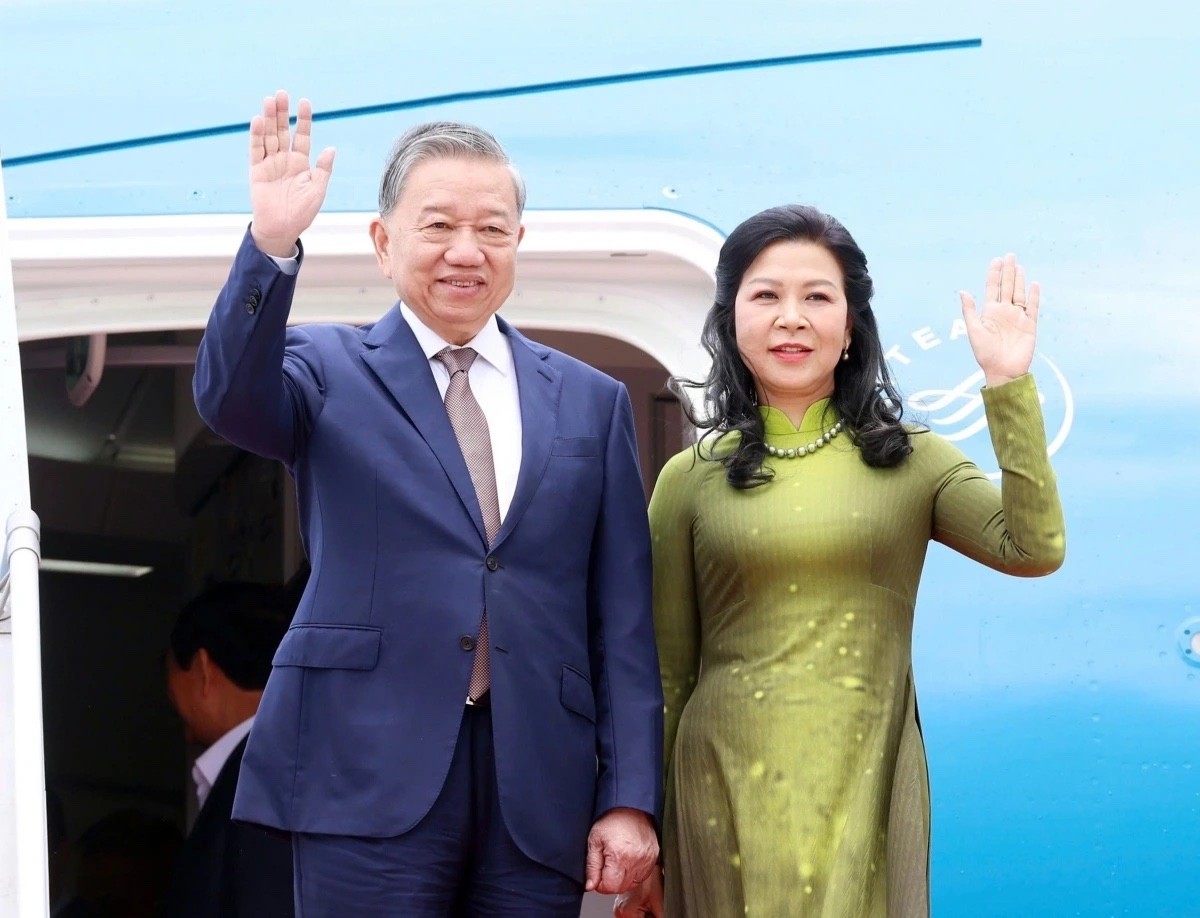 National
National

